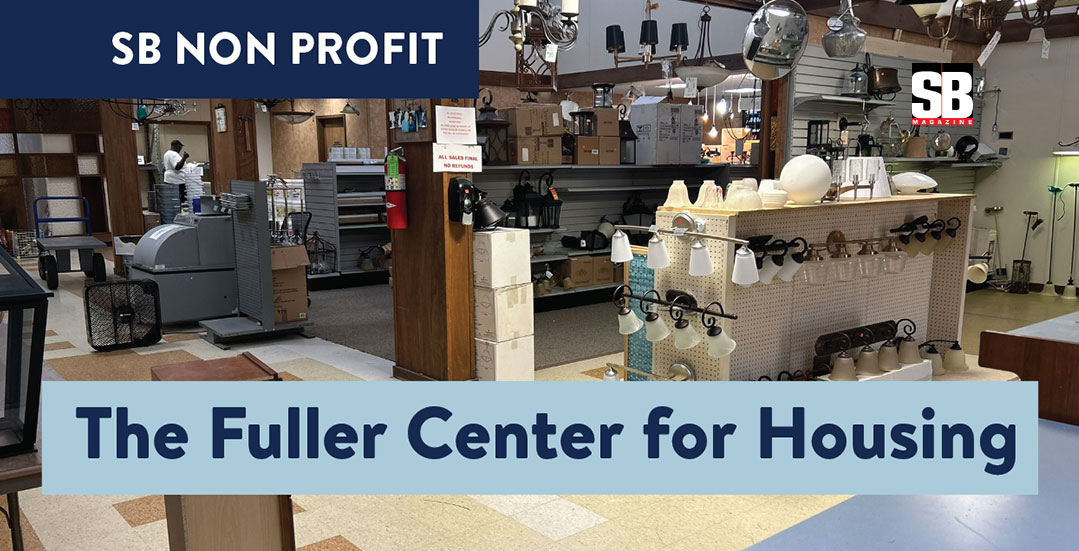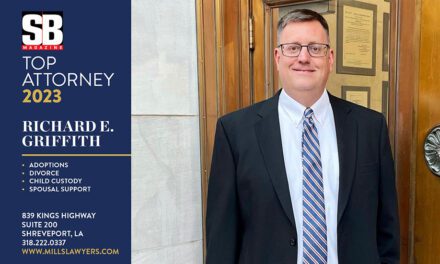By Ursula Brantley
Being able to wake up in a safe place of your own that’s decent, and not being forced to live in poverty or as one of America’s working poor is a privilege that countless individuals and families take for granted. According to the Department of Housing and Urban Development, 7,373 people were experiencing homelessness in Louisiana in January 2022, and an estimated 16.8% of them were unsheltered. Since 2005, The Fuller Center for Housing of Northwest Louisiana has done their due diligence to battle homelessness in NWLA. The faith-based nonprofit’s mission is to build decent and affordable homes for working families that cannot afford a home through traditional means while keeping founder Millard Fuller’s vision of building communities and empowering people through homeownership alive.
The Fuller Center for Housing came about in 2005 after Fuller, the founder of Habitat for Humanity, had disagreements with the board of directors of Habitat. Fuller believed that affiliates should not accept government funding, but the board of directors disagreed. He believed that every community should have the capability to support the construction of decent, affordable homes in their community. The board ended up firing its CEO, but Fuller still had a desire to serve the community by building homes for those in need. Fuller made the decision, along with his wife Linda, to change the name and start a new organization. Headquarters were set up in Americus, GA and the NWLA chapter was the first under the new flagship. Today, there are 75 affiliates across the United States, some of which are former Habitat affiliates that knew Millard, loved his vision, and wanted to continue with The Fuller Center. FCHNWLA Executive Director Lee Jeter began volunteering when the first homes were built in 2005 in the Allendale neighborhood. Since becoming Executive Director in 2009, he has worked tirelessly to be a catalyst for change in the SBC area. “What I like about the Fuller Center model is it allows the communities to determine how they want to proceed, whether they want to do rehab projects, whether they want to do new construction, whether they want to do a mixture of both. It’s really based upon the needs of your community and your local capacity. All the money that’s raised for Fuller House NWLA, is raised locally in our community, so we want to keep that money in our community,” says Jeter.
The Fuller Center has 61 established properties in the SBC area and 3 currently under construction in the Stoner Hill neighborhood. Their goal is to build 2-4 homes per year. Each client must complete first time homebuyers’ classes, credit/financial counseling, a certain number of sweat equity hours, and save 1/3 of their closing cost before they can move into their new home. Following that, all homeowners are required to do 52 hours of sweat equity a year. Most Fuller Center homes are in the Allendale and Stoner Hill neighborhoods though they would like to reach as many neighborhoods in the SBC as they can. Jeter explains, “We don’t spend money buying land so wherever we can get property donated is where we will build. We don’t want just one or two lots. We want 10-20 lots. We want to lift up the entire community and it’s difficult to do that with only one or two houses. Our vision in the Cedar Grove area was to build 20 houses in that community, but we’ve only been able to build two on the properties that were donated to us by the Catholic Diocese and Catholic Charities. The vision is to build in Cedar Grove, Queensborough, and the Martin Luther King area in a similar way to what we’ve done in the Allendale and Stoner Hill communities, and what we’re trying to do in Bossier”. The Stoner Hill area is currently where most of the homes for veterans are located. In 2013, Grammy-winner John Mayer contributed his time to help build a veteran’s home in Stoner Hill. The funds for that home were donated by Pink Floyd member Roger Waters.
FCHNWLA doesn’t begin construction of a home until they have the exact amount of budgeted money needed to build that home so that subcontractors are able to be paid within 48 hours of completing their work and passing the necessary inspections. Being that 100% of all donations go towards the construction of new homes, homeowners are paying it forward when they pay their monthly mortgages. That means 75% of their mortgage payments help cover FCHNWLA administrative costs that aren’t taken out upfront and 25% goes into new construction. Jeter explains, “My staff is very, very small, we have a staff of three. We try to keep our administrative costs less than 20%. Ideally, we want our administrative costs to run our programs to be somewhere between 13% and 15%, no higher than that because we really want to focus on the core mission of building homes.” He goes on to say, “We don’t spend a lot of money on marketing and advertising. Those dollars go to build houses. We will use whatever free services that we can get from our media. When construction costs go up, like what has happened over the last ten years, houses that we were building for $85,000 are now costing $100,000. That’s a $20,000 gap.”
To help fill that gap The Fuller Center operates their Surplus Store. Materials are donated by individuals and businesses and the Surplus Store sells those gently used and sometimes new construction items at a significantly lower price than you’d find in a typical hardware store. All proceeds from the Surplus Store go towards filling the administrative cost gap. When asked about the surplus store, Jeter replied, “If it’s brand new, then we will take it and use it in the construction of a new home. We’re never going to put anything used in a new home. If it’s something that’s been slightly used, we’re going to sell it to individuals that are trying to fix up their property. These are individuals that may own rental properties or individuals that may own an older home and they’re on a limited income, so they don’t have the financial resources to fix their home. They know they can come here and buy stuff at a price that’s affordable for them. That’s going to help them maintain their current home, but also is going to help us build future homes. It saves those items from going to the landfill and it reduces landfill waste. We like to look at it as we’re recycling, reducing, and reusing”. To become a Fuller Center client, an individual can go online and print an application or stop by their offices on Linwood Avenue and pick up an application. Churches, individuals, and organizations are always encouraged to volunteer their time or make monetary contributions of any amount to help uplift those in our area that so desperately need it.






